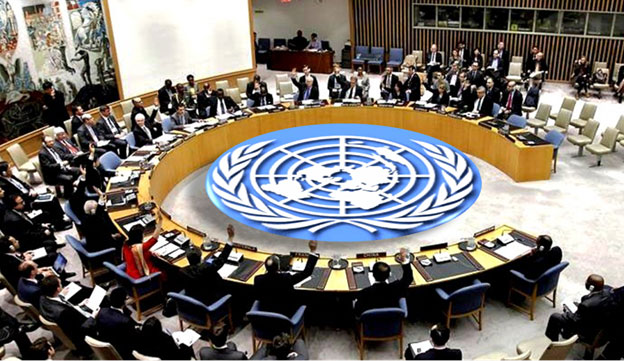African Bloc Can Pursue Feminist Foreign Policy in Global Governance Reform Push

NAIROBI, Mar 07 (IPS) - The United Nations Commission on the Status of Women will this month bring together government, civil society, and the private sector to strategize on the acceleration of gender equality, through strengthening institutions and financing from a gender perspective.
This comes a few months after a UN report indicated that it will take almost 300 years to attain gender equality. There is however renewed hope emanating from the efforts of African states – who just like women and girls around the world, have for years been working tirelessly to overhaul an unfair international system and bring down depressing statistics that have become synonymous with them.
Africa has recently displayed unapologetic intentionality about its rising emergence from a historically marginalized position in international politics.
Recently, Egypt and Ethiopia joined South Africa as the only African countries in the BRICS – a geopolitical bloc set up to counter the political and economic dominance of the wealthier nations of North America and Western Europe.
In 2023, the African Union also successfully negotiated its permanent position as a member of the G20 – a leading intergovernmental platform on economic stability and cooperation. Collectively, the G20 controls more than 85% of global gross domestic product, around 75% of global exports, and about 80% of the world's population.
In this sense, after a 7-year lobbying mission, Africa engineered an overdue shift from a tokenistic and extractive model of engagement that was in operation prior to its recent ascension to meaningful engagement at the decision-making table on a wide range of fiscal and economic issues.
This however remains the reality for women and gender minorities who are habitually included not to contribute to strategy formulation towards solving problems which they experience first-hand, but for the implementation of pre-determined activities often for the compliance with ‘standard form’ gender checklists for the sole purpose of fulfilling diversity quotas.
African Finance Ministers and Central Bank Governors have also been putting up a united front in global financial architecture reform efforts, towards new sources of development financing while deconstructing existing exploitative structures that have the continent in perpetual debt traps.
Parallels could be drawn with discriminatory labor practices and unequal pay, further compounded by unequal education opportunities and harmful traditional practices which push women and girls into vicious poverty and dependency cycles, ultimately cutting off their prospects of self-actualization.
African heads of state and government have reiterated the African position that calls for at least two permanent representative seats on the United Nations Security Council that is mandated to maintain international peace, globally.
Presently, Africa only holds temporary rotational membership despite decades of advocating for meaningful inclusion in this powerful decision-making UN organ. Albeit, given that historically the continent has been used as a battlefield for proxy wars by western states.
Moreover, African nations are increasingly taking up bold foreign policy positions. For example, South Africa recently brought Israel to the International Court of Justice for violation of the Convention on the Prevention and Punishment of the Crime of Genocide, against Palestinians in Gaza.
While it could take years for a final ruling from the Court – and with others arguing that the move was merely symbolic; preliminary orders which stopped short of a ceasefire were in favor of South Africa.
Not only does this set precedent in a longer judicial process as it contributes to the jurisprudence of international criminal law. It also establishes the rising influence of the BRICS member-African state in the global political landscape.
There is then opportunity for more African states to follow this lead on the over 110 active conflicts classified under international humanitarian law, towards accountability for violations occurring in wartime.
These have often been found to disproportionately affect women, girls and non-binary persons including by way of their sexual brutalization.
African governments can bolster the acceleration of the attainment of gender equality through the mainstreaming of intersectional feminist values in their evolving yet gallant foreign policy positions.
This is certain to encompass and integrate all their diversities and tailor suitable and sustainable interventions for their different contexts. Herein lies the promise of feminist foreign policy.
The same exclusive and abusive colonial structures that have for years sidelined the continent in global governance structures including international finance institutions, are the same ones upon which patriarchal structures are founded upon.
Hence, a cross-learning opportunity for civil society and the African bloc of states towards the pursuit of feminist foreign policy with sovereign states and multilateral organizations towards sustainable development. Without this, women, girls and gender minorities will continue suffering systemic inequalities that violate their human rights and freedoms for at least, three centuries.
Stephanie Musho is a human rights lawyer and a Senior New Voices Fellow at the Aspen Institute.
© Inter Press Service (2024) — All Rights ReservedOriginal source: Inter Press Service
 Global Issues
Global Issues